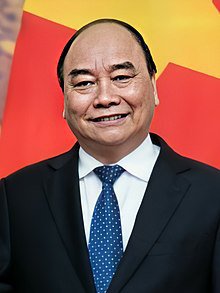There are a few interpretations of the name
The name Nguyen can be a boy or girls name of Vietnamese origin meaning "sleep". (I’ve also heard it means “origin”). And I’m not sure if it has the same meaning to both a boy and a girl?
Nguyen can be a first name or a second (surname)
The given name Nguyen appeals to parents who seek a name with genuine depth. A daring name, Nguyen possesses great character. Nguyen is unique yet compelling due to its enchanting and mesmerizing nature.
Nguyen - Wikipedia
Nguyen is the most common surname in Vietnam -- an estimated 40 percent of people in the country (and the Vietnamese diaspora) carry the name, according to Vietnam's Tuoi Tre News. Given that the global Vietnamese population totals about 94 million people, this means that some 38 million of them answer to "Nguyen."
The surname Nguyen is believed to have originated in the Chinese surname "Ruan" (in the Mandarin language) or Yuen (Cantonese), owing to China’s long relationship with Vietnam.
By the early 19th century century, the Nguyen Dynasty seized power in Vietnam (which unified the country), prompting yet another wave of surname changes and adoptions.
That dynasty, which "awarded" their surname to many people, ruled the country until the end of World War II.
Dr. Quang Phu Van of the Council on Southeast Asia Studies at Yale University also said that throughout Vietnamese history, due to dynastic changes, clans of royalty and loyal subjects changed their family names to protect their identity in order to avoid persecution by the new rulers.
“Others adopted the Nguyen name for political and personal reasons, including opportunities for jobs, privileges, power, affiliation, and so forth,” he added.
As such, the surname Nguyen does not necessarily denote one's regional origins, class or even lineage. “The surname itself has nothing to do with social class, unless it's combined with, say, Phúc which is a combination of [the names of] the last royal family,” said Dr. Nguyen-vo Thu-huong, associate professor in the departments of Asian Languages and Cultures and Asian American Studies at University of California, Los Angeles.
Given the proliferation of Nguyen’s in Vietnamese society, one might conclude that this would create much confusion and chaos in daily discourse. However, this scenario is largely avoided by the Vietnamese custom -- adopted from the Chinese -- of addressing people by their last name (that is, what is considered the 'first' or personal name in western society).
Most Vietnamese have three names -- the surname (or clan name), followed by a middle name, ending with the personal name. For example, with respect to the previous Prime Minister Nguyen Tan Dung, his family surname is "Nguyen," his middle name is "Tan," and his personal name is "Dung."
Unlike western custom, the Prime Minister is usually referred to as 'Dung' (or 'Mr. Dung') in the media and even in formal occasions. In some cases, he may be referred to as 'Tan-Dung.' (Also, some Vietnamese use dual surnames to further alleviate any confusion).
Current Prime Minister of Vietnam - Nguyễn Xuân Phúc


